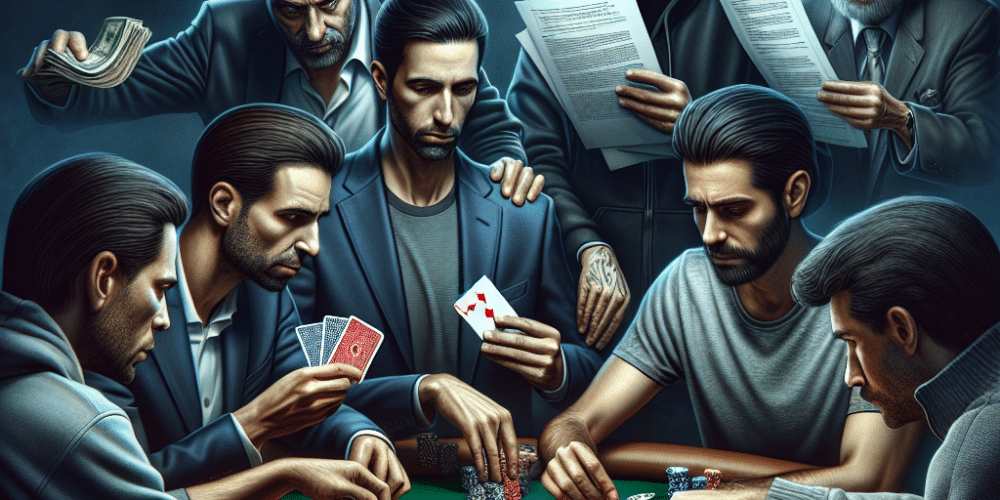In recent years, the poker community has seen an alarming increase in legal troubles involving some of its well-known players. As of October 2025, several poker professionals are either incarcerated or awaiting sentencing for charges ranging from fraud to bribery. This trend has sparked discussions about ethics and accountability in the competitive poker environment.
One high-profile case involves a player caught orchestrating an elaborate fraud scheme that defrauded investors of nearly $2 million. The accused player used the funds for personal expenses including luxurious trips and extravagant purchases, all under the guise of investing in high-stakes poker tournaments. This revelation has sent shockwaves through the poker world, raising questions about the need for stringent monitoring within the industry.
The poker industry, known for its high-stakes money and intense competition, is not immune to the broader societal issues of financial mismanagement and corruption. The inherent risks of gambling, combined with significant financial incentives, can sometimes lead players astray. The community often debates how much responsibility lies with individuals versus the system that enables such behavior. “It’s a part of the high-risk nature of the game,” some argue, pointing to the pressures players face to maintain their lifestyles and reputations.
Moreover, the integration of online poker platforms has introduced new dynamics into the mix, making it easier for illicit activities to occur. With the anonymity of the internet, players can exploit loopholes or engage in fraudulent activities with less fear of immediate repercussions. This complicates efforts to maintain fairness and transparency in the game, necessitating stricter regulations and oversight.
Another notable case involves a player accused of bribing officials to fix the outcomes of poker tournaments. This player’s actions not only violated the integrity of the game but also diminished the trust of fans and fellow competitors. The scandal has prompted poker associations to reevaluate their codes of conduct and the measures in place to prevent such incidents. “The integrity of poker is paramount,” echoed a sentiment among many in the community, highlighting the need for more rigorous enforcement of ethical standards.
Critics argue that these legal issues reflect deeper, systemic problems within the poker industry. They call for comprehensive reforms, including better education for players on the legal and ethical aspects of the game, and stronger penalties for those who breach the rules. Some suggest the creation of an independent body to oversee and regulate the industry, drawing parallels to other professional sports organizations that have successfully implemented such frameworks.
On the other side of the debate, some industry insiders believe that these incidents are isolated and not indicative of a larger trend. They point out the vast majority of players who participate fairly and contribute positively to the community. These advocates argue that enhancing existing regulations rather than overhauling the system is the more pragmatic approach. “We mustn’t let a few bad apples spoil the whole bunch,” they caution, emphasizing the importance of recognizing the achievements and integrity of honest players.
The legal challenges facing these poker players serve as a stark reminder of the potential consequences of unethical behavior. As the poker community grapples with these issues, it is clear that maintaining the balance between competition and integrity is critical. The future of poker depends on the willingness of its stakeholders to uphold its values and ensure a fair and just playing field for all.

David Harrison stands tall in gambling journalism, marrying his firsthand casino experiences with a deep understanding of betting psychology. His articles transform complex gambling jargon into engaging tales of strategy and chance, making the world of betting accessible and enjoyable. David’s knack for narrative extends beyond print, making him a sought-after speaker on gambling trends and future bets. In the realm of gambling, David is both a scholar and a storyteller, captivating readers and listeners alike.
















